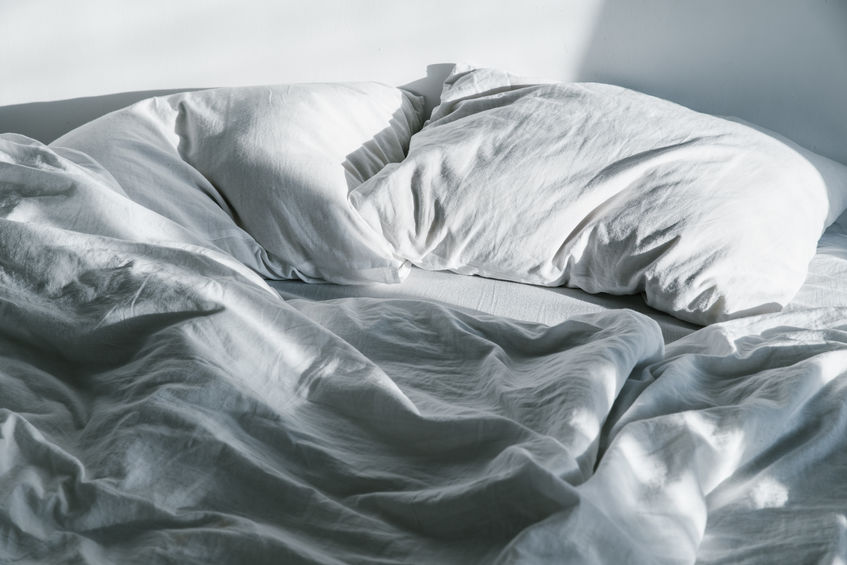Blog at a Glance
- Menopause is a completely natural biological process that marks the permanent end of fertility and menstruation.
- Research shows Menopause can disrupt women’s sleep patterns experiencing shorter sleep times of up to two hours and lighter sleep when compared to non-menopausal women.
- Sleep can be disrupted by menopausal symptoms such as feeling hot, insomnia, depression and anxiety caused by a decline in female hormones estrogen and progesterone.
- Sleep disruption can exacerbate women’s existing symptoms further and cause fatigue during the day.
- If Menopausal symptoms are disrupting your sleep, read the advice below to help you manage menopause for a better night’s sleep.
Women have it tough. We are born onto a hormonal roller coaster ride that we cannot get off and we are constantly adjusting to the wavering hormonal changes that our bodies go through. One significant life stage that every woman must face is menopause. Each woman’s experience is unique, with both positives and negatives sides to this milestone.
Menopause is a completely natural biological process that marks the permanent end of fertility and menstruation. Unfortunately, many menopausal women experience symptoms such as; mood swings, hot flashes, insomnia, depression and anxiety, which are all caused by the decline in the female hormones estrogen and progesterone.
What does Menopause do to my sleep?
For many women, menopause results in hot flashes during the night, which causes them to feel hot all over the body. Hot flashes can cause women to wake-up during the night, interrupting sleep and affecting sleep quality. Menopausal women generally experience:
- Shorter total sleep times by approximately 2 hours
- Shallower or lighter sleep (less Slow Wave Sleep)
- Trouble maintaining sleep rather than initial falling asleep
- Especially worse in the second part of the night and they can take almost 4 times longer to fall back asleep
- These menopausal related sleep problems can last beyond menopause and be compounded by age-related circadian rhythm processes that disrupt sleep
The constant interruption to sleep and frequently having to wake up leads many women to experience fatigue during the day. This can lead to an exacerbation of a woman’s existing menopausal symptoms, increasing irritability, anxiety, and depressive symptoms.
What can we do?
- Cooldown – Open the windows, use a light duvet or use a fan or air conditioning. Keep your evening attire light and breathable
- Make your bedroom a sleep haven – nice sheets, good curtains, no clutter or TV, quiet, some organic essential oils such as lavender.
- Eat foods that help manage Menopause symptoms such as; organic fruits and vegetables (particularly broccoli, broccoli sprouts, and cabbage), high fibre foods (nuts, ancient grains, seeds, and legumes), and foods high in omega-3 fats (salmon, sardines and flaxseed oil). Make sure to also be drinking at least 8 glasses of water per day.
- Try relaxing breathing/meditation before bed – 5 minutes of mindful breathing from your belly. Pop on some relaxing music and place your hands on your stomach to feel it rising and falling.
- Supplementation – certain vitamins and minerals have been shown scientifically to help. Especially Vitamin B5, B6, Magnesium and Vitamin C – preferably at once.
If you struggle with your sleep and want help and guidance from a trained professional, call us on 0800 345 999 to discuss booking a consultation with our Naturopathic Doctor or book online here. Book during this Month and you’ll receive 50% off consultations with our Naturopathic Practitioner.


